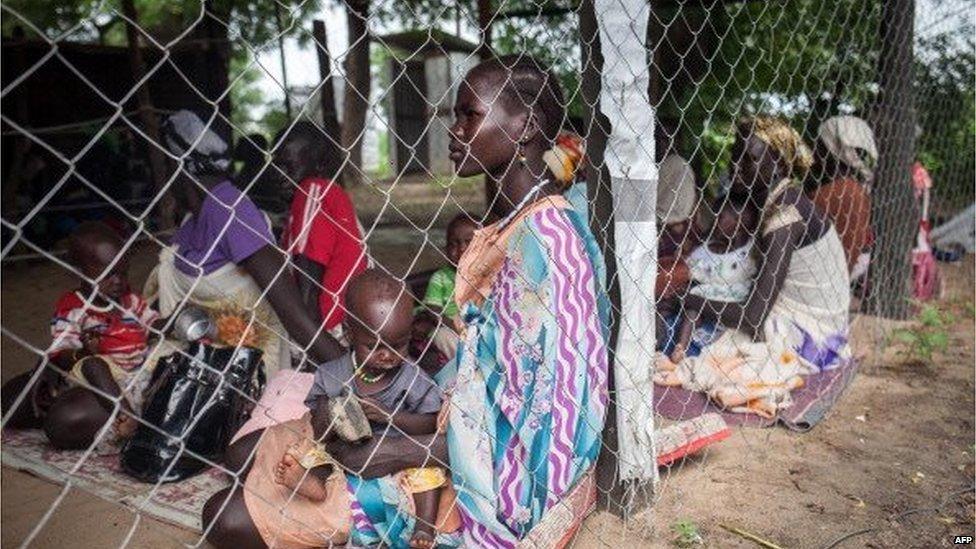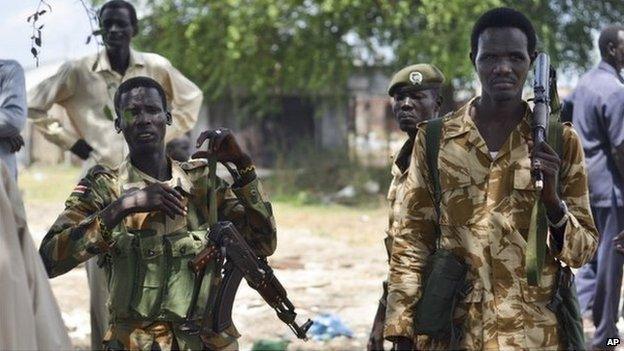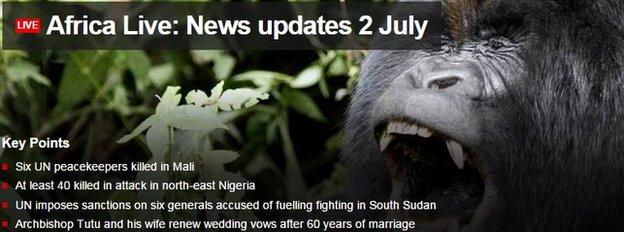South Sudan conflict: UN imposes sanctions on generals
- Published

The conflict has left at least two million homeless
The UN Security Council has imposed sanctions on six generals accused of fuelling conflict in South Sudan.
The generals, three from each side of the conflict, will face global travel bans and asset freezes.
On Monday, a UN report alleged that government troops had gang-raped and burned alive women and girls in the oil-rich Unity State, during an offensive against rebel forces.
South Sudan, the world's newest state, has been hit by conflict since 2013.
Among those targeted by the sanctions is the commander of President Salva Kiir special guard, Maj-Gen Marial Chanuong Yol Mangok.
On the rebel side, they include Maj-Gen Simon Gatwech Dual, chief of general staff for the opposition forces and a key ally of rebel leader Riek Machar.
'Self-interest'
The US ambassador to the UN, Samantha Power, said the Security Council had demonstrated that those who committed atrocities and undermined peace would face consequences.
"South Sudan's political leadership has squandered the international goodwill that accompanied its independence and pursued political and economic self-interest that has produced only violence, displacement and suffering for the South Sudanese people," she added.

The conflict has dashed the high hopes at South Sudan's independence
A UN report released on Monday described horrific violence in the latest fighting in Unity State.
It quoted witnesses as saying that the army had gang-raped girls and burnt them alive in huts.

Analysis: James Copnall, BBC South Sudan expert
The six generals are fairly well known in South Sudan, but are certainly not famous internationally. In some cases, they are fighting men who have hardly ever left their country.
Rebel and government supporters insist these men do not have foreign bank accounts, or plans to travel abroad. If this is the case, what's the point of sanctions?
The decision was probably taken for two reasons: To punish men considered responsible for some of the worst crimes of a particularly bloody war, and to put pressure on their bosses.
The message to Mr Kiir and Mr Riek Machar is this: Hurry up, sign a peace deal - or you could be next.
Not everyone is convinced this will work: The International Crisis Group think-tank has already warned the sanctions risk compromising the peace process.

South Sudan will be marking four years of independence next week after it seceded from Sudan.
At least two million people have been left homeless by the conflict which erupted in December 2013 after Mr Kiir accused Mr Machar, his sacked deputy, of plotting a coup.
Mr Machar denied the allegation, but then formed a rebel army to fight the government.
Various efforts to mediate an end to the conflict have failed.
Earlier this month, the UN humanitarian co-ordinator in the country, Toby Lanzer, was expelled by the government.
Reports say he was kicked out for highlighting the plight of those caught up in the conflict.


